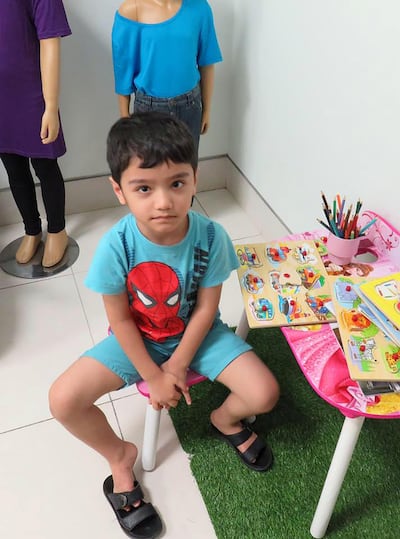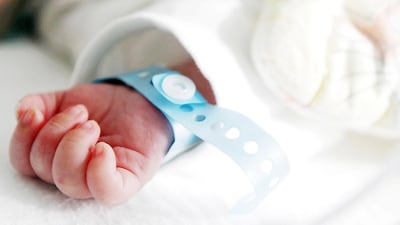Related: 'Foster dad' of Dubai's mystery lost mall boy comes forward
As many as five infants are abandoned near mosques or in front of buildings in Dubai every year, a senior official has said.
If police and social welfare officials are unable to track down the biological parents, the babies are put up for adoption.
Huraiz bin Huraiz, chief executive of the Community Development Authority's social care and development sector, told The National that they had handled 43 adoption cases since the CDA was established.
If children are abandoned in other emirates, the authority helps match them with prospective families in Dubai.
“Since 2013, when [the] CDA was founded, 100 per cent of abandoned children found in Dubai have been adopted. We have a waiting list of families wanting to adopt children,” Mr Huraiz said.
He said parents who seek to adopt the children must be Emirati and above the age of 25. They must also undergo rigorous vetting to ensure they can meet the child's emotional, social and financial needs. This includes presenting a doctor's certificate to prove they are physically and mentally well.
Single Emirati mothers older than 30 can also adopt.
“Our number one focus is that the child is well protected, in a safe and good environment,” Mr Huraiz said.
There are currently five families on the waiting list.
Once police and social workers clear a child for adoption, the child can be placed with a family within two months.
Social workers must carry out follow-up visits six times a year if the child is below the age of four, and four times a year if they are older.
“The child is taken to hospital for check-ups and vaccination,” Mr Huraiz said.

Mr Huraiz said every effort is made to reunite children with their biological parents.
“They take swabs from the child for a DNA test and match this with an available database to make sure that we can’t trace the biological mother or father and that the child is really abandoned. This way, when we give the child a new home, we have done all we can as a government to make sure they have no relatives here.”
Last year, an abandoned infant was reunited with her mother in the Philippines.
There have been some cases previously reported involving non-Emirati women who had children out of wedlock and abandoned them.
The cases have been described as "morality cases" by lawyers and the mothers face up to a year in prison under the UAE Penal Code.
Last month, a nationwide search was launched to find the mother of a five-year-old boy who was found outside a mall.
Dubai Police said a Filipina woman had been looking after him after her friend, the child's mother, abandoned him.
The boy is now in the care of the Dubai Foundation for Women and Children.
Barney Almazar, a director at Gulf Law and head of legal aid at the Philippine embassy, said he had dealt with cases of women who had children out of wedlock but were unable to leave the country because their visas had expired.
“Some women are really scared. Some do not know the law and, if the father has left the country, the mother is left with the child,” he said.
Mr Almazar said this raised a broader issue of paying heed to local customs and regulations.
“It all boils down to respecting the law. In the UAE, you are not allowed to have sex outside marriage and the law requires you to be married before you live together.
“We need to make foreigners aware of the law because this affects not only the person who violated the law but affects the basic rights of the child.”
Mr Huraiz said the children remain the focus for local authorities.
He said a unified 24-hour child protection hotline would be launched by the end of the year. It will combine the three hotlines currently run by Dubai Police, the CDA and the Dubai Foundation for Women and Children to help avoid duplication of work.
“A child is a child, whether this involves a UAE national or another nationality,” he said.
“It’s hard for us to judge why the children were left. Their parents are unknown, their situation is unknown. We don’t know why they have done this.”

